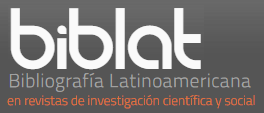Biological aspects and tumorigenic activity of the Ras proto-oncogenic family
DOI:
https://doi.org/10.5433/1679-0367.2010v31n2p201Keywords:
K-RAS, p21, Signal transduction, Oncogene.Abstract
Proto-oncogenes play an important role in the regulation of the cellular cycle, being critical to the tumorigenesis. In this category we can find the RAS family. Due to the high transformation potential of these genes, this family is the best described and most studied one. It is formed by the H-, K- and the N-RAS genes, that codify highly related proteins expressed in several types of cells, denominated p21.These proteins act in the sign transduction from the membrane to the nucleus, as well as in the control of proliferation, differentiation and cellular death, and they are regulated by the interaction with GDP (inactive) and GTP (active). These proteins show variation in only 10 - 15% of the primary structure, in the C-terminal portion denominated hyper-variant region. When in the oncogenic form, the p21 proteins remain active, providing continuous stimuli to the cellular proliferation. Among the RAS genes, K-RAS ones have been the most studied for presenting more frequent mutations and for being present in more aggressive tumors, implying the patients’ shorter survival time. Due to these facts and relative bibliography lack in the Portuguese language on this family, we presented in this work a systematized and updated review on the RAS genes.Downloads
Downloads
Published
How to Cite
Issue
Section
License
Copyright (c) 2011 Semina: Ciências Biológicas e da Saúde

This work is licensed under a Creative Commons Attribution-NonCommercial 4.0 International License.
adopts the CC-BY-NC license for its publications, the copyright being held by the author, in cases of republication we recommend that authors indicate first publication in this journal.
This license allows you to copy and redistribute the material in any medium or format, remix, transform and develop the material, as long as it is not for commercial purposes. And due credit must be given to the creator.
The opinions expressed by the authors of the articles are their sole responsibility.
The magazine reserves the right to make normative, orthographic and grammatical changes to the originals in order to maintain the cultured standard of the language and the credibility of the vehicle. However, it will respect the writing style of the authors. Changes, corrections or suggestions of a conceptual nature will be sent to the authors when necessary.
This Journal is licensed with a license Creative Commons Assignment-NonCommercial 4.0 International.
















